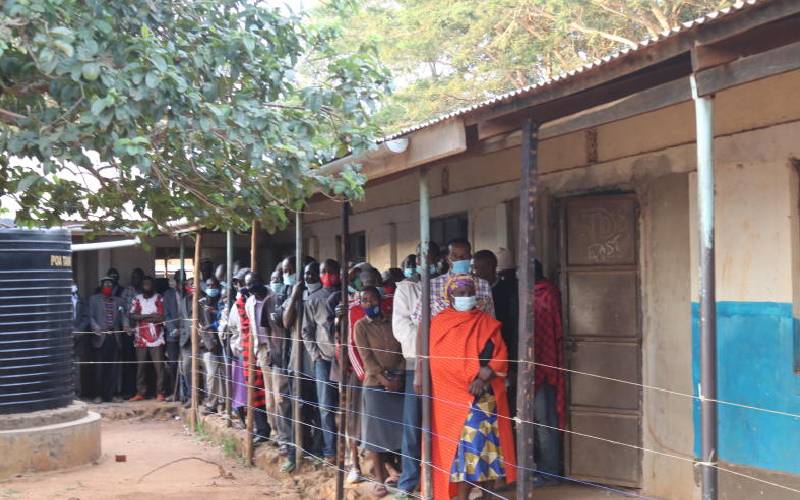×
The Standard e-Paper
Informed Minds Prefer The Standard

Kabuchai residents queue at Sikusi primary school during the voting day to elect their MP. [Nathan Ochunge, Standard]
Without a doubt, 2022 polls will be a watershed election. Since the beginnings of voter-centric elections in 1992, the dynamics of the elections have largely been the same.